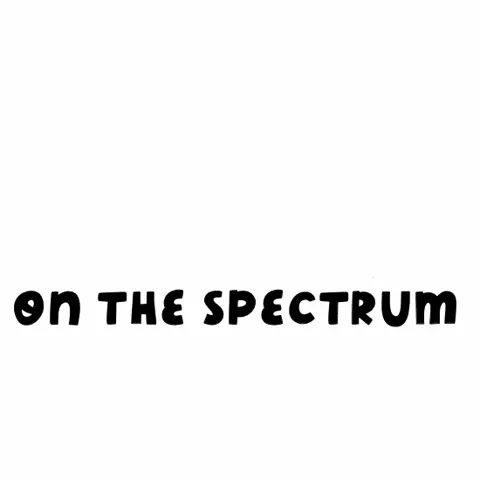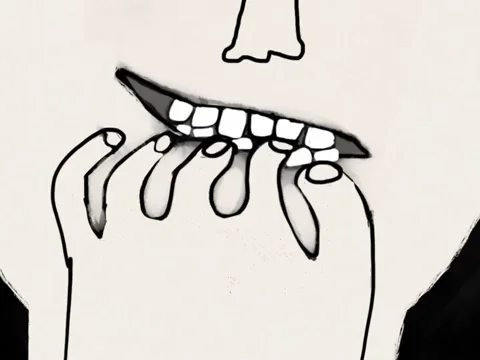According to a 2017 CDC study, about 2.21% of adults in the U.S. are on the autism spectrum — that’s roughly 1 in 45 adults.
Many have never been formally diagnosed and have simply learned to live with their symptoms of autism as adults.
Have you ever found yourself wondering if some of your thoughts, feelings, or behaviors might be linked to autism? Or maybe you’ve noticed signs in someone you know, like a neighbor, coworker, or partner, and started to question it?

Autism symptoms in adults can show up in a variety of ways, most of which include:
Social challenges
Repetitive and/or restrictive behaviors
Intense or narrow interests
Not every autistic adult will experience all of these symptoms, but being familiar with them can make it easier to recognize autism when you see it.
1. Social Challenges
For many autistic adults, connecting with others or understanding emotions can be tough.
 Photo by Etienne Boulanger on Unsplash
Photo by Etienne Boulanger on UnsplashThey might:
Find it hard to start or keep a conversation going
Have challenges making or maintain friendships
Feel anxious in social settings and often prefer being alone
Have trouble picking up on social cues, like body language or facial expressions
Not always recognize how others are feeling
Come across as blunt or overly direct in conversation
Miss subtle social hints or have a hard time with sarcasm and figurative language
Avoid eye contact

Read the following conversations. Which of these responses might be from an autistic person?
 Conversation 1
Conversation 1
Josh: "I just got the job. Thank god I landed on my feet!"
Jessie: "Congrats! Let’s go out for dinner to celebrate."
 Conversation 2
Conversation 2
Catie: "I’m tired. Like, really tired." (Glancing at the clock)
Alex: "Oh, same! I was at the library all day. First, I had to reorganize my notes, and then..."
 Conversation 3
Conversation 3
Elena: "Great, just great. Our car broke down. What perfect timing!"
Ben: "Oh…I didn’t realize this was actually a good time for it to break down."
Quiz
Which of these responses might be from an autistic person? Select all that apply:
2. Repetitive and/or Restrictive Behaviors
Repetitive or restrictive behaviors are common autism symptoms in adults.
These might include:
Stimming: This refers to repetitive movements, such as hand-flapping, spinning, or rocking. While it might seem disruptive to others, stimming usually helps the person feel calm or manage overwhelming emotions.
Strict routines: Many autistic adults prefer sticking to the same daily routines and may feel uncomfortable or stressed when there are unexpected changes.

Every day, Amelia takes the same bus to the library, listens to the same playlist, and sits in the same spot. One day, someone else has taken her usual seat, forcing her to sit elsewhere. Despite arriving on time, she feels uneasy all day.
When overwhelmed, Amelia compulsively bites her nails and picks at the dead skin around her fingertips.

3. Narrow Interests
Autistic adults often have limited but strong interests.
 They might:
They might:
Focus intensely on one or two topics
Possess a deep knowledge of the topics
Have an excellent memory for details related to their interests
 James, who is a diagnosed autistic adult, can recall every train model that’s ever been used in his city, even the ones from years ago. But his intense focus on this topic can make it tough for him to relate to people who don’t share the same passion.
James, who is a diagnosed autistic adult, can recall every train model that’s ever been used in his city, even the ones from years ago. But his intense focus on this topic can make it tough for him to relate to people who don’t share the same passion.
Autism Symptoms in Adult Women
Did you know that adult women are more likely to mask signs of autism in social situations?
Because of common stereotypes about what autism “looks like,” many women are diagnosed late, misdiagnosed, or not diagnosed at all.
As the TikTok video above demonstrates, they might show traits that are different from those seen in autistic men or boys:
Hiding their condition and try to blend in, which can lead to stress, anxiety, and feeling overwhelmed
Mimicing socially acceptable behavior (aka "masking") and appearing to manage social situations well, even if they're having difficulty internally
These factors can make autism harder to spot in adult women.
Quiz
 Jane has noticed that her friend Mindy often twirls her hair, especially when she’s feeling anxious. The other day, Mindy lost her job, so Jane tried to cheer her up by saying, “Hey, when one door closes, another one opens.”
Jane has noticed that her friend Mindy often twirls her hair, especially when she’s feeling anxious. The other day, Mindy lost her job, so Jane tried to cheer her up by saying, “Hey, when one door closes, another one opens.”
Instead of feeling comforted, Mindy just looked puzzled and didn’t respond.
Quiz
Based on this interaction, which trait(s) are commonly linked to autism might Mindy be showing?
Take Action
 Photo by Eden Constantino on Unsplash
Photo by Eden Constantino on UnsplashWant to learn more about autism in adults?
Your feedback matters to us.
This Byte helped me better understand the topic.
